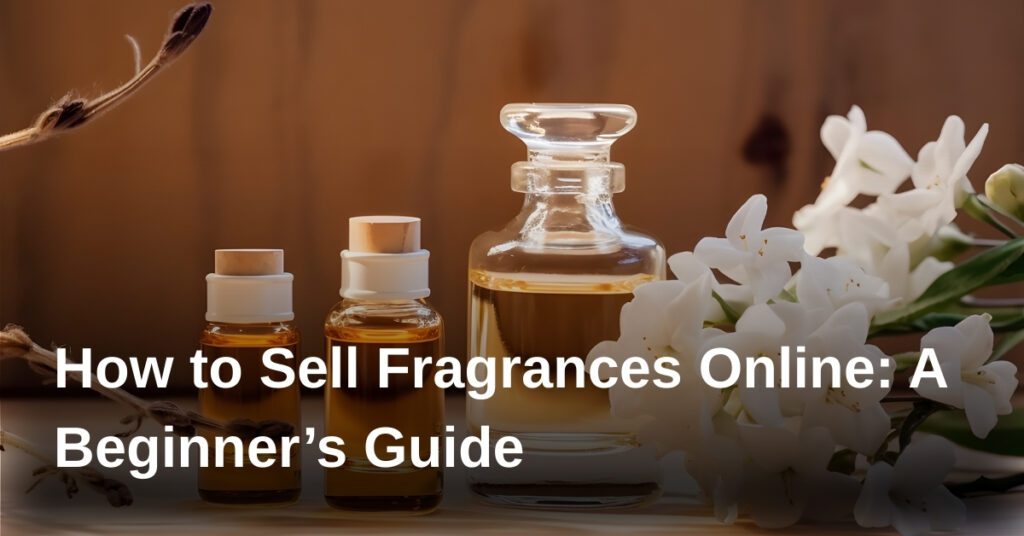
Understanding the Online Fragrance Market: Trends and Opportunities
Navigating the online fragrance sector requires understanding several emerging trends. One notable shift is the growing preference for curated selections, driven by personalized recommendations. Shoppers often search for the best selling male fragrances, yet their decisions can be swayed by rare finds or unique packaging. There is subtle ambiguity in how customers define value—some prioritize price, while others focus on rare notes or brand prestige.
For those who sell fragrances online, adaptation is crucial. Digital platforms have opened up fresh avenues, but competition remains fierce. Success depends not only on offering the best selling male fragrances but also on creating a seamless buying experience. Popular strategies include:
- Sell fragrances: Provide a wide and updated selection.
- Personalize: Recommend products tailored to user behavior.
- Build trust: Share genuine reviews and detailed descriptions.
Accordingly, mastering these aspects can help retailers stay ahead as tastes and expectations continue to evolve online.
You Can Also Review These:
How to Sell Perfume Online – A Complete Guide Just for YOU
Choosing the Right Fragrances to Sell: Wholesale vs. Private Label
Deciding whether to Sell fragrances through wholesale or opt for private label is not always straightforward. Each approach brings unique opportunities and a few uncertainties. When you Sell fragrances wholesale, you typically gain quicker access to established brands and ready-made products. This can simplify inventory management and reduce startup risk. However, building your own unique identity may prove challenging, as your selection is tied to external suppliers. Choosing private label, on the other hand, allows you to craft bespoke scents and strengthen your brand image. Although investment and creativity are greater, so are potential rewards if your formulas resonate with customers. It’s not unusual for businesses to blend both models, especially during market entry phases. Therefore, it’s wise to consider your target audience and resources before deciding how you’ll Sell fragrances. Both models require careful research, strategic planning, and a bit of intuition about where trends may be heading next.
Crafting a Distinctive Brand Identity for Your Online Fragrance Store
Creating a memorable identity for your online fragrance store is more than just picking a logo or a color scheme. It’s about telling a story that resonates with your audience and encourages them to sell fragrances with you, not just buy them. Focus on defining your brand’s personality—elegant, playful, or mysterious. Your tone, language, and even your packaging should all align with this image. It might seem tricky at first, especially when you try to balance authenticity and professionalism. However, consistency is crucial. Customers remember stores that feel genuine, whether through thoughtful descriptions, unique scents, or eye-catching visuals. Encourage visitors to not only explore but also to recommend or even sell fragrances from your collection if your model allows. Although trends shift, a true, relatable identity leaves a lasting impression. In the fragrance world, this advantage can be subtle, yet powerful.
Setting Up Your E-Commerce Platform: Shopify, WooCommerce, and Alternatives
Selecting the right platform is vital when planning to sell fragrances online. Shopify offers a straightforward process and robust app ecosystem, which appeals to many entrepreneurs. It shines when you’re after ease of use and quick launches; however, monthly fees can add up, especially as your store grows. WooCommerce, by contrast, builds on WordPress flexibility, making it easier to customise if you’re somewhat tech-savvy. Costs can be lower initially, yet managing plugins may become complex over time. Interestingly, some sellers consider lesser-known alternatives, valuing unique features or pricing but risking limited support or integration issues.
Comparing these options before making a decision is crucial. Consider:
- Shopify: Intuitive setup for sell fragrances businesses.
- WooCommerce: Highly customisable, ideal for hands-on control.
- Alternatives: May fit niche needs but require careful evaluation.
Ultimately, the best approach depends on your goals, budget, and how you prioritise ease of use versus customisation.
Optimising Product Listings: Writing Engaging Descriptions and Taking High-Quality Photos
An effective product listing does much more than simply display an item. Especially when looking to sell fragrances, the description must evoke emotion and imagination. Use sensory language; hint at the mood, occasion, or personality the scent complements. Instead of listing ingredients, describe how wearing the sell fragrances makes one feel—perhaps a touch more mysterious or confident. However, ambiguity can sometimes spark curiosity, prompting buyers to discover more. Equally important are high-quality photos. Ensure your images capture the bottle’s design, colour, and any elegant packaging details. Natural lighting often works best, but a clean, uncluttered background is essential. Show at least two angles, because buyers rely heavily on visuals. Optimising both text and images will increase trust and engagement—vital for those who want to sell fragrances effectively. Still, some experimentation may reveal what truly resonates with your unique audience.
Implementing Effective SEO Strategies for Your Fragrance Website
To thrive in today’s digital market, your fragrance website needs more than just beautiful imagery. Employing effective SEO strategies is essential if you wish to sell fragrances successfully. Start by researching relevant keywords that align with your products, but don’t neglect long-tail queries, as those often lead to highly engaged visitors. Optimizing meta titles, descriptions, and image alt-text can drive better search engine visibility. However, authentic and engaging content remains central—this means blog posts about scent profiles, usage tips, or even seasonal recommendations.
“It’s not only about ranking. SEO creates a pathway for your customers to find exactly what they’re seeking.”
Internal linking, fast-loading pages, and mobile responsiveness also quietly boost your chances to sell fragrances online. Additionally, although many agree backlinks are powerful, the real value may lie in how well your site answers your audience’s specific questions. Keep analysing and refining—SEO for fragrance businesses never really stands still.
Building Trust with Customers: Reviews, Sampling, and Return Policies
Establishing genuine trust is crucial when you aim to sell fragrances online, yet it can be slightly more nuanced than it first appears. Potential customers often hesitate, largely because they cannot test scents before buying. Understanding this, successful stores focus on three pillars: reviews, sampling, and return policies. Positive reviews offer social proof and help minimize doubts, although occasional critiques may arise. Sampling is another valuable technique, granting shoppers the chance to experience a sell fragrances scent before committing fully—especially useful when choices feel overwhelming. Meanwhile, clear and fair return policies reduce the risks associated with the purchase. Some brands, for example, offer partial refunds or exchanges if the product remains mostly unused, though policies do differ. In my opinion, these combined practices form the foundation for client confidence; however, even small missteps may have an outsized effect on perception. Therefore, consider reviewing each aspect regularly.
- Reviews: share real customer experiences
- Sampling: encourage trying before buying
- Return Policies: assure risk-free purchasing
Marketing Your Online Fragrance Business: Social Media, Influencers, and Email Campaigns
Effectively marketing your online fragrance business demands a well-rounded approach. Utilising social media creates direct channels to potential customers, where tempting visuals and engaging content can spark curiosity or even loyalty. Collaborations with influencers remain a potent strategy; their followers trust their recommendations, and a single review might encourage many to confidently sell fragrances through word-of-mouth. Email campaigns, meanwhile, let you nurture relationships—though results are not always immediate, a thoughtful message may bring substantial orders over time. Blending these strategies can lift your brand’s profile and, hopefully, your sales. Nevertheless, mastering consistency across platforms is a challenge; content must be fresh and authentic. Monitoring analytics may offer insights, but trends sometimes shift unpredictably in this industry. If you wish to sell fragrances online successfully, I recommend experimenting with various approaches until you discover what resonates with your audience. Ultimately, creativity and adaptability open doors to lasting connections, and consistently sell fragrances to interested buyers.
Managing Inventory, Order Fulfilment, and Customer Service for Long-Term Success
Effective management of inventory, order fulfilment, and customer service lays the foundation for sustainable growth, especially for businesses that sell fragrances. A reliable sell fragrances operation demands precise stock tracking, though occasional errors are almost inevitable given fluctuating trends and supply chain variables. Therefore, implementing smart systems can improve accuracy and prevent costly overstocking or missed sales. When you sell fragrances online or offline, seamless order fulfilment is crucial, yet it may be disrupted by external factors beyond your control. Timely shipping, clear communication, and the ability to adapt to changes often set successful brands apart. Accordingly, customer service must go beyond solving problems; it should nurture loyalty, support brand reputation, and encourage repeat business. Although perfection is rare, consistent attention to these areas increases the likelihood of long-term success in a market where consumer expectations keep evolving.
Conclusion
Selling fragrances online can be both exciting and rewarding, especially if you approach it with patience and creativity. Start small, listen to your customers, and focus on building trust. Remember, standing out in a crowded market takes time, but if you stay true to your brand and never compromise on quality or customer care, success will follow. In my opinion, those who sell fragrances with passion and consistency will find their niche, turning curious browsers into loyal scent lovers.
Frequently Asked Questions
How can I start selling fragrances online?
To start selling fragrances online, choose a reliable platform (such as your own website, marketplaces, or social media), source authentic products, set competitive prices, and ensure compliance with legal requirements.
Is it legal to resell branded perfumes?
Yes, it’s generally legal to resell branded perfumes as long as you purchase them from authorized sources and do not infringe on trademarks or sell counterfeit goods.
Where can I find suppliers for genuine perfumes?
You can find suppliers through authorized distributors, wholesale marketplaces, or by partnering directly with fragrance brands. Always verify the legitimacy of your supplier.
What are the best platforms to sell fragrances?
Popular platforms include eBay, Amazon, Etsy, and Shopify. You can also sell on specialized perfume marketplaces or your own e-commerce site.
How do I ensure the fragrances I sell are authentic?
Buy only from reputable wholesalers or authorized distributors. Check product batch codes, packaging quality, and request certificates if needed.
Can I sell fragrance samples or decants?
Yes, selling samples or decants is common, but make sure to check the platform’s policy and label your products accurately.
Do I need a license to sell perfumes?
Depending on your location, you may need a business license and possibly other permits. Check your local regulations before starting.
What packaging should I use for shipping fragrances?
Use sturdy, leak-proof packaging and comply with shipping regulations for liquids and hazardous materials. Clearly label your packages.
How should I price my fragrances for sale?
Research the market, consider your costs, analyze competitors, and price your fragrances attractively while maintaining a profit margin.
How do I market my fragrance business?
Utilize social media, content marketing, influencer collaborations, and targeted ads. Offering promotions, samples, and excellent customer service can also help attract buyers.
Related Articles:
How to Sell Action Figures Online: A Beginner’s Guide
